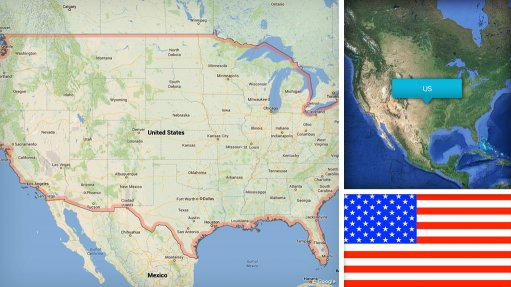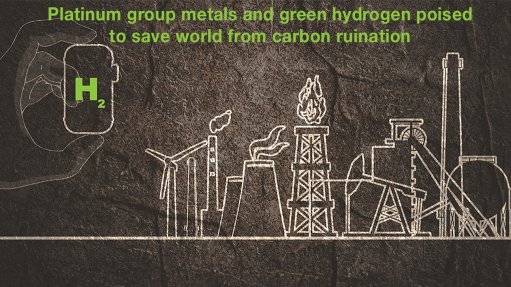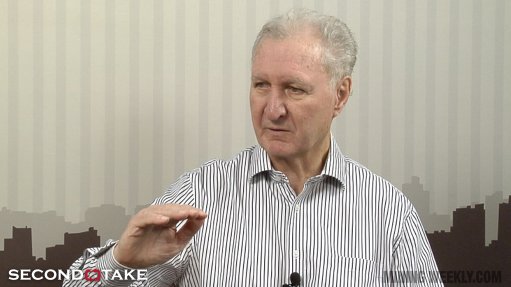Providing the human touch to machines
While South Africa is preparing for the Fourth Industrial Revolution (Industry 4.0), international organisations are already bracing for Industry 5.0.
This fifth wave of industrial innovation will see humans working alongside “smart” machines and robots to achieve new levels of precision, efficiency and productivity.
It is a natural progression from Industry 4.0 that harnesses the power of artificial intelligence (AI), machine learning (ML), robotics and the Internet of Things (IoT).
This era of cyber-physical systems, including autonomous vehicles, nanotechnology, biotechnology, energy storage and cloud computing, is already having a significant impact on the way in which people live, work and interact with one another.
However, Frikkie Eloff, Regional Manager of First Technology Group’s Limpopo and Mpumalanga operations, says the ramifications of the Fifth Industrial Revolution will be significantly more profound, and South Africa has to, therefore, start preparing for it now.
“This is when man and machine shake hands to introduce the so-called ‘human touch’ to modern technological processes. A sound example is the convergence of human intelligence with cognitive computing in the manufacturing sector to produce more value-added goods, while consumers will be able to harness this ability to personalise their orders en masse,” Eloff says.
As humans and machines continue to interact and collaborate in the future, highly automated manufacturing and self-managed supply chains will become a reality which, he says, “is much closer than many would want to believe”. This is considering the rapid rate of technological development, especially between the Third and the Fourth Industrial Revolutions.
The First Industrial Revolution took place in the late 1700s when steam was harnessed to provide power.
This period of technological revolution was followed by the development and application of electrical technologies in the in the late 1800s.
However, it was the significant strides made in computers and information technology in the 1970s that would eventually catapult the world into a new digital era and pave the way forward for the subsequent two extremely advanced phases of industrial innovation.
Companies were now able to start automating processes to reduce errors and improve productivity, albeit at a very limited scale considering that these systems were still heavily reliant upon human intervention.
Manufacturing was just one of a number of industries that benefited significantly from, among others, improved Internet access, connectivity and renewable energy during the Third Industrial Revolution.
Eloff says that the swift and almost seamless transition from Industry 4.0 to Industry 5.0 will “challenge existing mind-sets of entrepreneurs and ‘Captains of Industry’”.
“In order to stay abreast of the latest ‘disruptive’ technologies and remain relevant, business leaders will have to continue looking forward to pre-empt the latest “disruptive” trends. There will also have to be closer collaboration between competitors in industries and even with companies in other sectors to ensure readiness,” he says.
Certainly, there is also a need for greater co-operation between the private and public sectors, as well as universities and unions, especially in a country that faces unique socio-economic challenges, such as soaring unemployment, mainly among the youth; low skills levels; and growing disparities. These are against the backdrop of economy that has been underperforming since the worldwide recession at the end of 2008.
Co-operation between these critical stakeholders is essential to ensure a steady pipeline of advanced skills to needed for Industry 4.0, as well as the increasingly automated era of the Fifth Industrial Revolution.
In many instances, especially in the production and manufacturing sectors, MI and robots will be able to perform most if not all of the functions that have traditionally been undertaken by low-, semi- and skilled employees. This is opposed to only operating in the background and supporting skilled workers.
Over the past decade, for example, the banking sector has been using AI and algorithms to negotiate and define the share price to make precise buying and purchasing decisions within Nano-seconds.
Other examples of sophisticated technologies with autonomous decision-making algorithms include self-driving cars and the “platooning” of trucks.
This is in addition to the autonomous mining equipment that has already been successfully deployed in drilling; loading and hauling operations; as well as in and
around stockpiles. All of these “driverless” vehicles are able to determine how to avoid accidents, increase productivity and reduce pollution without human intervention.
Meanwhile, forward-thinking ports authorities are already deploying sophisticated technologies to protect infrastructure and operations against rising sea levels and storm surges, as well as other extreme weather phenomena due to climate change.
A sound example is the Maeslantkering, a massive storm surge barrier that protects the Port of Rotterdam, the busiest port in Europe, against severe and unpredictable weather events.
When sea levels reach a critical level, namely three meters above average, the system engages the doors and swings them across the 360m-wide entrance.
This large “gate” is controlled by an automated weather-tracking computer system and the decision to open and close it is taken by both skilled people and sophisticated robots to eradicate the risk of a catastrophic disaster due to human error.
Closer to home, Transnet Port Terminals recently implemented Portinsider, a leading next generation Port Community System technology, at the Port of Durban.
Comprising a combination of port-call optimisation tools and hinterland platforms, the system has significantly boosted efficiency, information provision and safety at Africa’s busiest port.
First Technology Group is already working with leading international port automation technology developers to design other systems that trigger automatic notifications via smart algorithms that are able to receive real-time updates.
They can be converted via IoT and displayed on First Technology Group’s dashboard to provide accurate time of arrival for vessels, as well as improve the efficiencies of loading and offloading operations. These are over-and-above the critical role that the technology is playing in enabling ports authorities to accurately predict storms and other severe weather events, such as tsunamis.
The group’s smart solutions are based upon its extensive technological track record, as well as robust partnership with some of the world’s leading instrumentation, automation, motion and robotics development companies.
Certainly, the extremely high level of sophistication of AI and the large part that it will play in making far-reaching decisions in the foreseeable future also means that the way in which humans and machines interact in the future will have to be clearly defined and regulated.
“Now is the time to be thinking about and preparing for Industry 5.0. Moving forward, it is imperative that we have a sound understanding of these advanced algorithms to ‘pull the plug’ when necessary and according to set rules and regulations. First Technology Group is ready to assist government and leading high-tech companies define and develop a framework for machine intelligence,” Eloff concludes.
Comments
Press Office
Announcements
What's On
Subscribe to improve your user experience...
Option 1 (equivalent of R125 a month):
Receive a weekly copy of Creamer Media's Engineering News & Mining Weekly magazine
(print copy for those in South Africa and e-magazine for those outside of South Africa)
Receive daily email newsletters
Access to full search results
Access archive of magazine back copies
Access to Projects in Progress
Access to ONE Research Report of your choice in PDF format
Option 2 (equivalent of R375 a month):
All benefits from Option 1
PLUS
Access to Creamer Media's Research Channel Africa for ALL Research Reports, in PDF format, on various industrial and mining sectors
including Electricity; Water; Energy Transition; Hydrogen; Roads, Rail and Ports; Coal; Gold; Platinum; Battery Metals; etc.
Already a subscriber?
Forgotten your password?
Receive weekly copy of Creamer Media's Engineering News & Mining Weekly magazine (print copy for those in South Africa and e-magazine for those outside of South Africa)
➕
Recieve daily email newsletters
➕
Access to full search results
➕
Access archive of magazine back copies
➕
Access to Projects in Progress
➕
Access to ONE Research Report of your choice in PDF format
RESEARCH CHANNEL AFRICA
R4500 (equivalent of R375 a month)
SUBSCRIBEAll benefits from Option 1
➕
Access to Creamer Media's Research Channel Africa for ALL Research Reports on various industrial and mining sectors, in PDF format, including on:
Electricity
➕
Water
➕
Energy Transition
➕
Hydrogen
➕
Roads, Rail and Ports
➕
Coal
➕
Gold
➕
Platinum
➕
Battery Metals
➕
etc.
Receive all benefits from Option 1 or Option 2 delivered to numerous people at your company
➕
Multiple User names and Passwords for simultaneous log-ins
➕
Intranet integration access to all in your organisation















